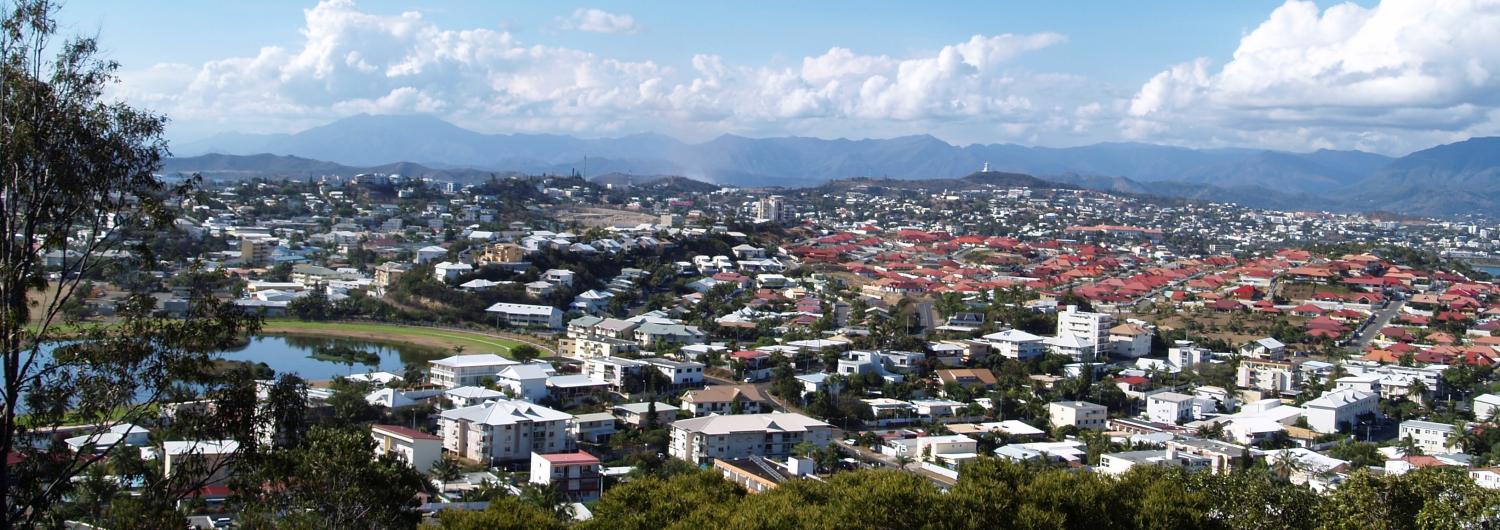Macron’s election to the Presidency creates increased uncertainty in the French Pacific territories, with developments on the eve of the vote potentially undermining stability in New Caledonia, Australia’s close neighbour.
The legislative elections in June are the main game for France’s three Pacific territories and Macron will now run his own candidates in those elections. This will unsettle local leaders. Macron’s New Caledonia representative Patrick Louis is an unknown.
Just as for broader French policy, the extent of the majority or coalition support Macron can muster, given divided support in the first round, will affect the treatment of the territories. In the past, cohabitation (when the Presidency and National Assembly are of differing political complexions) has had negative effects, especially in New Caledonia. Just two days before this vote, local Kanaks quietly marked the 29th anniversary of the 1988 massacre, when 19 of their relatives lost their lives at the hands of French forces, an event influenced by cohabitation from 1986. Moreover, Macron has a big domestic agenda and little overseas territory experience, meaning at least a hiatus in State attention to the region.
New Caledonia is France’s pre-eminent territory, where France’s future role in the Pacific will be redefined in an independence referendum that will take place before November 2018, and it is being closely watched by the other territories. The New Caledonia vote gave Macron only a relatively narrow lead, 52.57% to Le Pen’s 47.43%, with a turnout of 52.81%, five points higher than in the first round, unusual given the lower national turnout. Macron owes his win largely to pro-independence leaders who secured a larger turnout in the Northern and Island Provinces where many rarely vote in such elections. Pro-France Noumea and west-coast farmers again voted strongly for Le Pen. They will remain disgruntled and concerned at the ability of independence groups to mobilise support as the referendum nears.
In a bid to win over these conservative Fillon/Le Pen supporters from the first round, Macron gave an interview on 5 May, making comments that intensified debate in an already tense environment.
Having previously not taken sides, he finally expressed his 'personal' preference for New Caledonia to remain part of France, as all previous French presidents have done, while respecting the vote of the people.
However, he also went further, specifying that the only referendum question had to be: 'Do you want New Caledonia to accede to full sovereignty?' He said: 'No other question can be posed juridically or politically', and that it was up to the main parties to explain to the electorate what staying with France or full sovereignty meant. This blunt position echoes the 'referendum couperet' or brutal 'guillotine' vote, advocated by very few extreme loyalists, and it ignores current discussions on the question/s to be put. Pro-independence groups will be disappointed, some preferring a nuanced package of questions. And yet it was these very independence leaders, along with the largest, moderate loyalist Calédonie Ensemble, who supported Macron in the second round, while other loyalists urged a Le Pen vote or abstention.
Macron’s comments on security also touched nerves. Loyalists complain that French High Commissioner Thierry Lataste, acting on instructions from Paris, has been weak in dealing with ongoing violence perpetrated by young Kanaks. Macron's claims that: 'As to the future, I am convinced that France’s presence is necessary to guarantee civil peace and development in New Caledonia', and 'the services available to the High Commissioner must respond more rapidly and more directly to attacks on local institutions' will provoke some independence leaders.
Given Macron’s lack of territory experience, it is now even more important that senior French officials well-versed in the contemporary history of New Caledonia continue mediating this final phase of the Noumea Accord. Loyalist criticisms of Lataste, and a specific public Loyalist accusation on the eve of the election against the head of one French negotiating group, Alain Christnacht, undermine stability. Christnacht and Lataste are founding fathers of the 1988 and 1998 Matignon/Noumea Accords, have close links with independence and loyalist groups, and the involvement of both undoubtedly smooths the referendum process. Whether or not Macron keeps them on will affect continued stability.
For the other two French territories the issues are less immediate. In French Polynesia, Macron won 58.39% of the vote, with a turnout of 46.89%. The major loyalist party Tapura had supported Macron, the aged but influential loyalist Gaston Flosse backed Le Pen, and independence leader Temaru urged abstention while personally favouring Macron. Macron has been cautious about promising too much, saying only that the recent Elysée Agreement, a development framework signed by Hollande in February 2017, was “a good base” for discussion about future measures.
In tiny Wallis and Futuna, as in the first round, Macron won a convincing 70.14%, with 72.01% turnout. There are no real issues with Paris, and Macron made no specific undertakings there.

